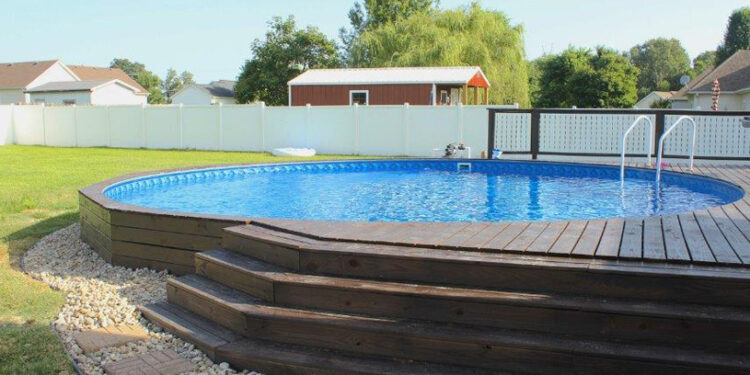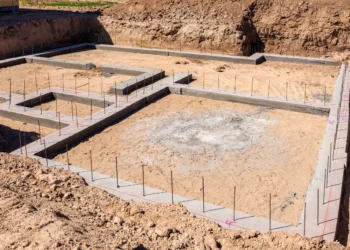When creating a refreshing oasis in your backyard, above-ground swimming pools have become famous for many homeowners’ great investments and the best aesthetic addition. These pools offer a range of benefits, from affordability to easy installation.
However, like any investment, they also come with their own set of drawbacks. Check the pros and cons of the above-ground swimming pools before deciding on your outdoor space.
Pros of Above-Ground Swimming Pools
Affordability
One of the most significant advantages of above-ground swimming pools is their affordability.
Compared to in-ground pools, the initial cost is significantly lower, making them a budget-friendly option for families looking to enjoy the benefits of a collection without breaking the bank.
Easy Installation:
Above-ground pools are relatively easy to install and require less time and effort than in-ground pools.
Most above-ground pool kits come with detailed instructions, allowing homeowners to set up the collection themselves or with the help of a professional.
Portability
Unlike in-ground pools, above-ground pools are portable. If you ever decide to move, you can disassemble the pool and take it to your new home.
This flexibility particularly appeals to those who may plan to stay in a different house for an extended period.
Space-Saving
Above-ground pools take up less space than their in-ground counterparts. This makes them a practical choice for smaller yards or properties where space is limited.
You can still enjoy the benefits of a pool without compromising the entire outdoor area.
Safety
Above-ground pools offer an added level of security, especially for families with young children or pets.
Their elevated design makes it more difficult for unsupervised individuals to accidentally enter the pool area, reducing the risk of accidents.
Maintenance
Maintenance for above-ground pools is generally more accessible and less time-consuming than in-ground pools.
Cleaning, chemical balancing, and general upkeep are simplified, thanks to the pool’s smaller size and accessible components.
Cons of Above-Ground Swimming Pools
Limited Durability
Above-ground pools are typically made from materials like vinyl, which may not be as durable as the concrete or fiberglass used in in-ground pools.
Harsh weather conditions, improper maintenance, or accidents can lead to tears or damage to the pool’s structure.
Aesthetics
While above-ground pools have come a long way in design and aesthetics, they may still be less visually appealing than in-ground pools.
Some homeowners prefer in-ground pools’ seamless and integrated look within their landscaping.
Limited Size and Depth Options
Above-ground pools generally have smaller size and depth options than in-ground pools.
The choices may be small if you have specific preferences for a large or deep pool.
Installation Limitations
Depending on your yard’s layout, installing an above-ground pool may be limited by slope, uneven terrain, or trees or structures.
Assessing your yard’s suitability before committing to an above-ground pool is essential.
Lifespan
While above-ground pools can provide years of enjoyment, they may have a shorter lifespan than well-maintained in-ground pools.
Factors such as exposure to the elements and wear and tear over time can affect the pool’s longevity.
Resale Value
Regarding resale value, above-ground pools may offer a different return on investment than in-ground pools.
Some potential homebuyers may view above-ground pools as temporary or less desirable, which could impact the overall value of your property.
Bottom Line
It’s essential to weigh the pros and cons of above-ground swimming pools to determine if they are the right choice for your needs and preferences.
Consider your property’s budget, available space, maintenance requirements, and long-term plans. By doing so, you can make an informed decision and create a delightful outdoor retreat that suits your lifestyle.










